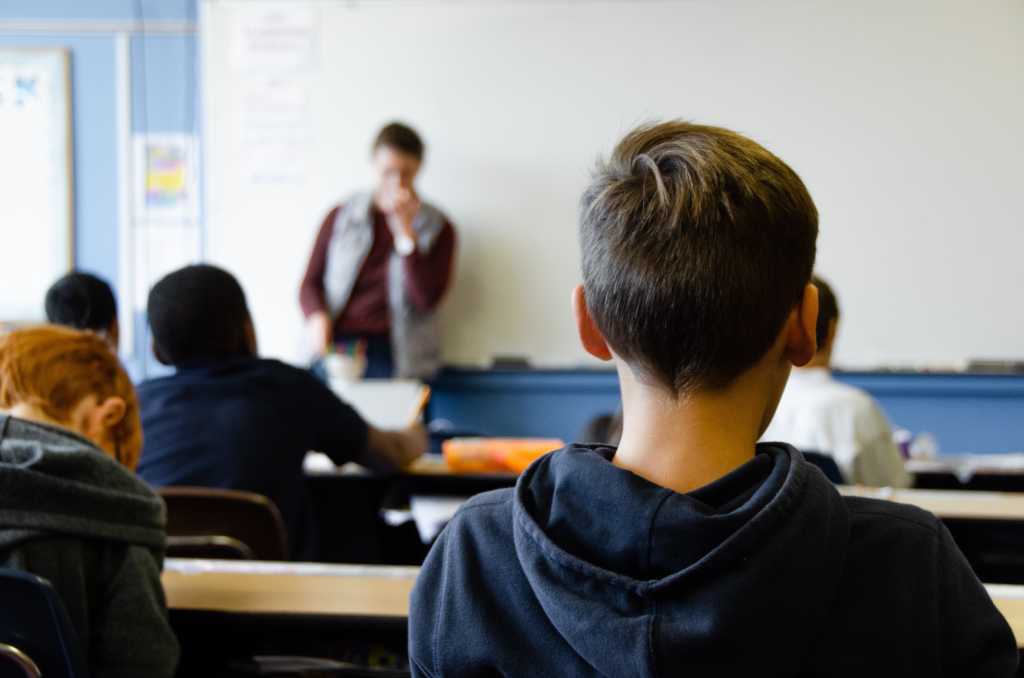The American Academy of Pediatrics is encouraging government officials and school administrators around the country to allow kids to return to class in the fall despite the spread of the coronavirus.
In a Monday statement, the AAP argued the cost of keeping children separated from the academic setting as well as their peers could be worse than the effects of COVID-19, claiming the dearth of social and educational exposure may be leading to increased instances of abuse, drugs use, and even suicidal attempts.
“The AAP strongly advocates that all policy considerations for the coming school year should start with a goal of having students physically present in school,” read the statement, in part. “The importance of in-person learning is well-documented, and there is learned evidence of the negative impacts on children because of school closures in the spring of 2020.”
“Lengthy time away from school and associated interruption of supportive services,” the statement continued, “often results in social isolation, making it difficult for schools to identify and address important learning deficits as well as child and adolescent physical or sexual abuse, substance use, depression, and suicidal ideation.”
The association went on to claim all those factors “places children and adolescents at considerable risk of morbidity and, in some cases, mortality.”
Keeping kids out of the classroom, the health experts explained, has already had a “substantial impact” on students’ physical health and nutrition.
Additionally, the AAP pointed to the fact the novel coronavirus is, according to the research currently available, substantially less dangerous for younger people, particularly children and adolescents with healthy immune systems.
The coronavirus “appears to behave differently in children and adolescents than other common respiratory viruses, such as influenza, on which much of the current guidance regarding school closures is based,” wrote the AAP. “Although children and adolescents play a major role in amplifying influenza outbreaks, to date, this does not appear to be the case with SARS-CoV-2 [coronavirus].”
“Although many questions remain,” the statement continued, “the preponderance of evidence indicates that children and adolescents are less likely to be symptomatic and less likely to have severe disease results from SARS-CoV-2 infection. In addition, children may be less likely to become infected and to spread infection.”
During a hearing in the U.S. Senate on Tuesday, Dr. Anthony Fauci, the nation’s top infectious disease expert, told lawmakers, “I feel very strongly we need to do whatever we can to get the children back to school.”
During the testimony, Sen. Rand Paul (R-Ky.) ripped into Fauci, who serves as a member of the White House Coronavirus Task Force and helms the National Institute of Allergy and Infectious Diseases, for wielding too much unilateral power in dictating Americans’ cultural decisions regarding the coronavirus pandemic.
“It is a fatal conceit to believe any one person or small group of people has the knowledge necessary to direct an economy or dictate public health behavior,” said Paul, who is a physician. “I think government experts need to show caution in their prognostications.”
“It’s important to realize that if society meekly submits to an expert and that expert is wrong, a great deal of harm may occur when we allow one man’s policy or one group of small men and women to be foisted on an entire nation,” he added.
Later in the hearing, he rebuked Fauci for being a know-it-all and constant naysayer.
“Dr. Fauci, every day we seem to hear from you things we can’t do,” the senator said. “But when you’re asked, ‘Can we go back to school?’ I don’t hear much certitude At all. ‘Well, maybe.’ ‘It depends.’ Guess what? It’s rare for kids to transmit this. I don’t hear that coming from you. All I hear is, ‘We can’t do this.’ ‘We can’t do that.’”
Fauci did concede a lot of policymakers and medical experts are “putting opinions out without data.”



